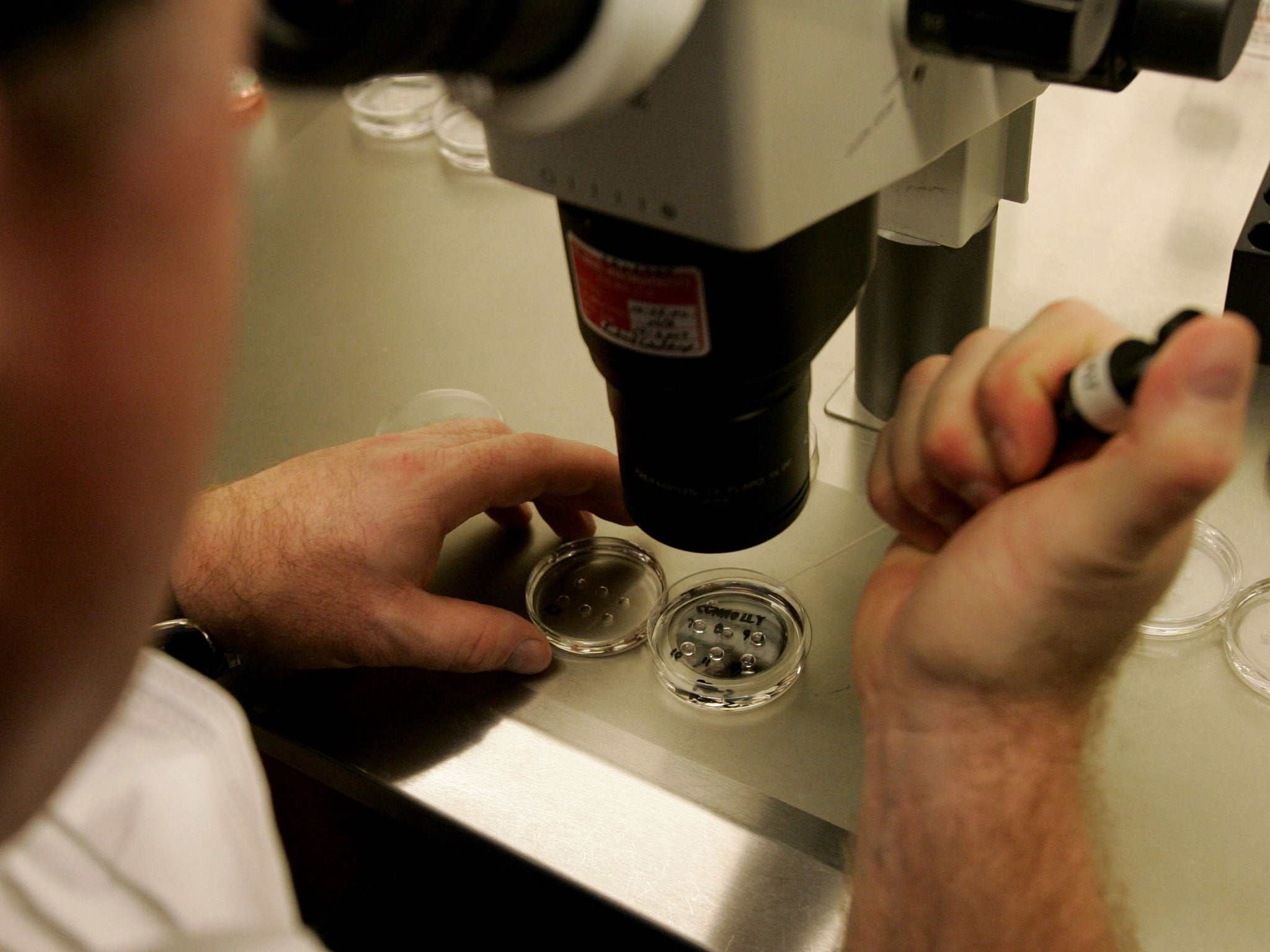Genetic screening breakthrough: IVF baby born after revolutionary technique is used

A baby boy has been born following a revolutionary IVF technique that allowed doctors to screen large tracts of his DNA for chromosome defects that would have prevented the embryo from implanting successfully into his mother’s womb.
It is the first time that scientists have used whole genome sequencing to test for defects in IVF embryos that are not apparent from visual inspections. The technique could help to improve the success rate of IVF cycles, making it easier for some couples to have children.
The boy, born a month ago to parents living in Pennsylvania in the United States, is healthy and normal. Another American woman who underwent the same procedure is also pregnant and about to give birth, said Dagan Wells of the Biomedical Research Centre at Oxford University, who helped to develop the technique.
Abnormal chromosomes are one of the single biggest problems that prevent IVF embryos from successfully implanting – and probably the main reason why about 80 per cent of IVF embryos fail to develop into full-term, healthy pregnancies.
“Chromosome abnormalities are about tenfold greater in number in humans than in any other species we know of. As chromosome abnormalities go up, implantation rates go down in almost a mirror image of one another,” Dr Dagan said.
Previous research suggests that testing IVF embryos for chromosomal abnormalities before implantation can improve success rates by a third and reduce miscarriages by a half, Dr Dagan will tell the European Society of Human Reproduction and Embryology, meeting in London this week.
The technique, called “next generation sequencing”, uses DNA machines to decipher the genetic code of millions of strands of DNA taken from a single cell of the embryo extracted when it is about five days old. This reveals whether there are abnormal numbers of chromosomes, or cases where parts of a chromosome are deleted, Dr Dagan said.
Doctors used the technique to screen the DNA of seven embryos from the couples undergoing IVF. The women were aged 35 and 39 and one couple had a history of miscarriage.
“Many of the embryos produced during infertility treatments have no chance of becoming a baby because they carry lethal genetic abnormalities. Next generation sequencing improves our ability to detect these abnormalities and help us to identify the embryos with the best chances of producing a viable pregnancy,” Dr Dagan said.
“In the past few years, results from randomised control trials have suggested that most IVF patients would benefit from embryo chromosome screening, with some studies reporting a 50 per cent boost in pregnancy rates.
“However, the costs of these genetic tests are relatively high, putting them beyond the reach of many patients. Next generation sequencing is a way which could make chromosome testing more widely available to a greater number of patients,” Dr Dagan said.
Each year in Britain, licensed clinics carry out about 60,000 IVF treatments but most of them end in failure, causing immense emotional upset to couples, many of whom have paid between £5,000 and £10,000 for each treatment cycle.
Dr Dagan said that his technique currently costs several hundred pounds but relies on sequencing technology that is getting cheaper and cheaper. He believes that eventually the additional costs will come down to a point where it will save private patients or the NHS the cost of repeating IVF cycles that become unnecessary.
Join our commenting forum
Join thought-provoking conversations, follow other Independent readers and see their replies
Comments
Bookmark popover
Removed from bookmarks